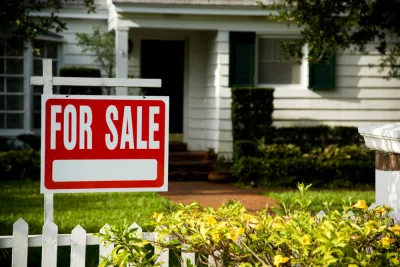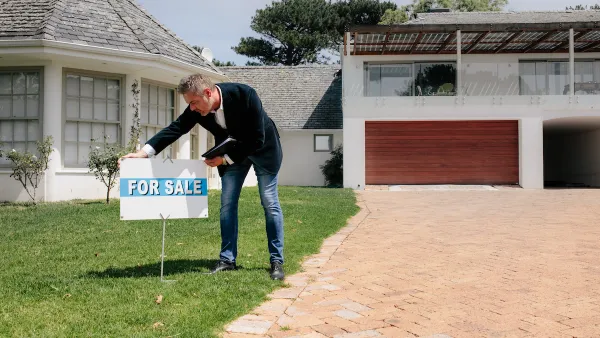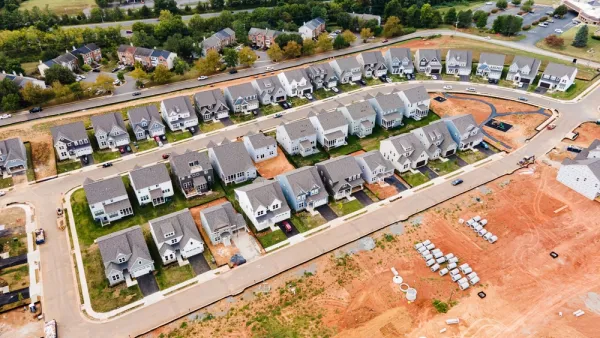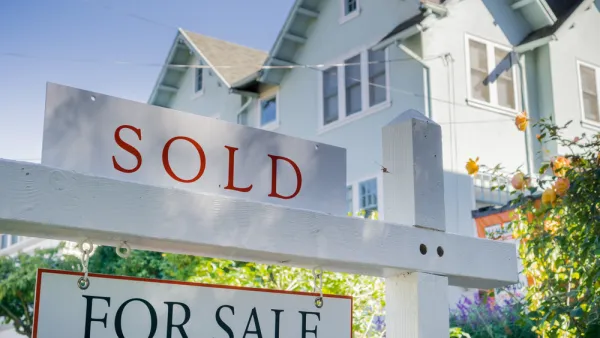The sharp rise in housing costs created massive wealth for property owners, while shutting many potential homebuyers out of the market.

The pandemic housing market created over $6 trillion in new wealth, according to an article by Emily Badger and Quoctrung Bui.
It’s a remarkably positive story for Americans who own a home; it’s also inseparable from the housing affordability crisis for those who don’t.
“That dual reality follows what has been a mass wealth creation event with few precedents in American history,” the article continues. “During the last housing boom, the run-up in home values was similarly dizzying but limited to fewer parts of the country. And that equity largely vanished in the kind of bust that economists say is far less likely to happen this time.”
The authors clarify that “this wealth is not the same as having money parked in a bank account, of course. To use it, households must sell a home or tap its value through a tool like a home-equity loan, and that’s not risk-free. But evidence shows that homeowners wield home equity in real ways — to send their children to college, to start businesses or to invest further in housing, building even more wealth.”
Rising costs, however, are putting homeownership as a means of wealth creation out of reach for many more households. “It will amplify inequality, as gains go disproportionately to baby boomers (at the expense of millennials who will one day buy their homes), and to white households, who have a homeownership rate that is 30 percentage points higher than that of Black households.”
According to Benjamin Keys, a professor at the Wharton School of Business, the recent boom in home prices happened largely because building new housing is so difficult in the United States. This leads the authors to an alarming conclusion: because high home values benefit existing homeowners, who often resist new construction near them, “that could make the case for building more of it harder still.”
FULL STORY: The extraordinary wealth created by the pandemic housing market

Analysis: Cybertruck Fatality Rate Far Exceeds That of Ford Pinto
The Tesla Cybertruck was recalled seven times last year.

National Parks Layoffs Will Cause Communities to Lose Billions
Thousands of essential park workers were laid off this week, just before the busy spring break season.

Retro-silient?: America’s First “Eco-burb,” The Woodlands Turns 50
A master-planned community north of Houston offers lessons on green infrastructure and resilient design, but falls short of its founder’s lofty affordability and walkability goals.

Test News Post 1
This is a summary

Analysis: Cybertruck Fatality Rate Far Exceeds That of Ford Pinto
The Tesla Cybertruck was recalled seven times last year.

Test News Headline 46
Test for the image on the front page.
Urban Design for Planners 1: Software Tools
This six-course series explores essential urban design concepts using open source software and equips planners with the tools they need to participate fully in the urban design process.
Planning for Universal Design
Learn the tools for implementing Universal Design in planning regulations.
EMC Planning Group, Inc.
Planetizen
Planetizen
Mpact (formerly Rail~Volution)
Great Falls Development Authority, Inc.
HUDs Office of Policy Development and Research
NYU Wagner Graduate School of Public Service




























